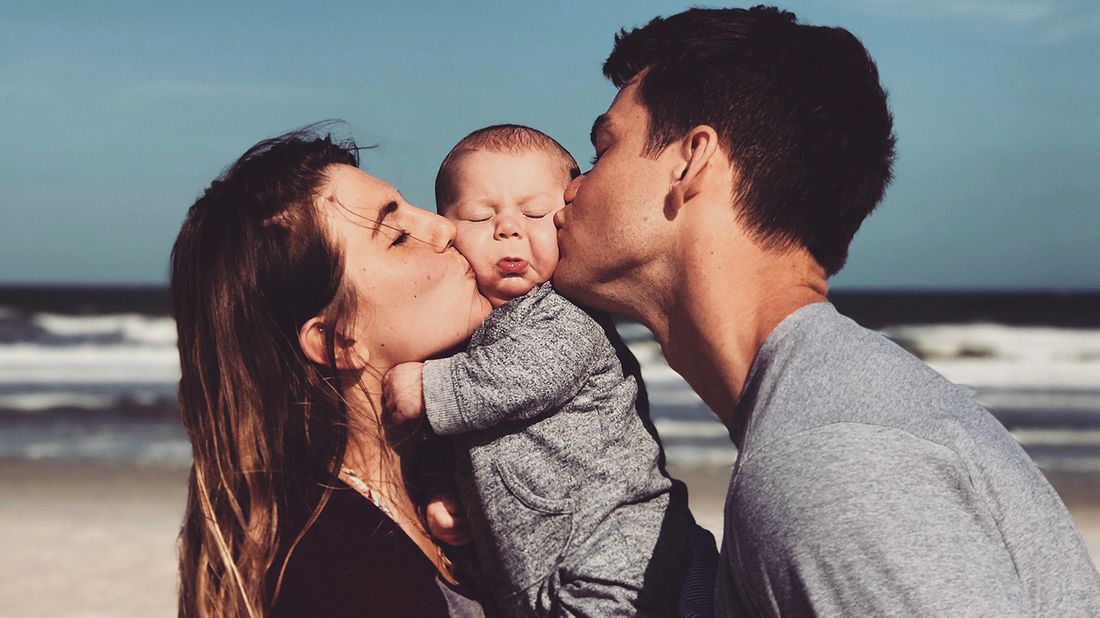5 Big Money Mistakes New Parents Make — And How to Avoid Them

The excitement of pregnancy and preparing for a baby is real. But when the celebration turns to a deep-dive of Pinterest-perfect nurseries, it's easy to drop hundreds of dollars (or more) without realizing it.
Here are some common money mistakes new parents should avoid.
New parent money mistakes to avoid
Stockpiling preemptively
Resist the powerful nesting instinct and stick to the essentials. "You only truly need clothes, diapers, a safe place to sleep and a car seat," says Liz Tenety, co-founder of Motherly. "Everything else is flexible, and your baby may have preferences you'll want to accommodate once you get to know him or her." This is especially true when it comes to buying contraptions like swings and carriers, which you may want to try with baby before you buy.
Plus, you can always easily get what you need when you need it. "With near-instant delivery from services like Instacart, Shipt and Amazon Prime, no mama needs to feel like she needs to run a baby store in her basement," Tenety adds.
Buying everything new
For some of us (*raises hand*), it's hard to imagine putting your pure, precious newborn into a hand-me-down stroller. But by the time that infant is a few months or years old, you may be kicking yourself for buying new gear.
"I definitely started out buying everything brand-new that I needed," says Suzanne Brown, author of Mompowerment and a mom of two from Austin, Texas. "Over time I realized I could have borrowed some of the items, like a bouncer or a bathtub to bathe baby, or bought them second-hand. I wish I had started that approach earlier because many items you buy for age 2 and under are used very little."
Just because a baby item exists doesn't mean you need it.
If no one in your friend or family group has older kids (and items to share), check Facebook parent groups or garage sales, Tenety suggests. However, know that some things should be purchased new: Unless you know and trust the full history of a used car seat (as in, it's never been in an accident), you shouldn't get it second-hand.
Thinking you need every baby-related gadget
Just because a baby item exists doesn't mean you need it. When you see other parents' gear, it can be tempting to get your baby the same developmental toy or play mat.
Ready to take the next step? A financial advisor can show you how all the pieces of your financial plan fit together.
However, your kid really won't know what they're missing. While baby blogs and parenting sites may sing the proverbial praises of having a jumper, a play gym, a Bumbo and so on, most little ones are happy chilling on a blanket outdoors or on your living room rug. Save your funds for the toddler years.
Not researching money-saving alternatives
While cloth diapers aren't for everyone, they can save you some green. According to The Bump, cloth diapers cost $800 to $1,000, versus $2,000 to $3,000 for disposables, for the first two years.
"When I think about all the money I spent on disposable diapers, I just want to weep," says Emily Farmer Popek, an Oneonta, New York-based writer who has a child in elementary school. "At the time, cloth diapers seemed too expensive, but in retrospect they would have paid for themselves within the first year of my daughter's life.”
Honova agrees, noting you can get diapers second-hand or even receive hand-me-downs from a kind friend. "People worry about water bills, but honestly we didn't see much of a change,” she says, noting her laundry habits increased during the first few months of having a baby anyway.
Miscalculating child care costs
Child care is a huge cost. However, Tenety shares that when new parents weigh whether one of them should stay home with baby or if they should employ child care, many go about it all wrong.
"Most families deduct the cost of child care only from the mother's salary, which usually leads people to conclude that it's not worth it for her to work," she explains. "Instead, I'd encourage women to distribute the cost of child care from both their salary and their partner's salary. It's a mental trick but it really has an impact." After all, this shared reduced earnings is temporary and it allows both partners to continue to grow in their careers, leading to (theoretically) higher earnings for both in the future.
Feel better about taking action on your dreams.
Your advisor will get to know what’s important to you now and years from now. They can help you personalize a comprehensive plan that gives you the confidence that you’re taking the right steps.
Find your advisor




